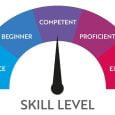
Introduction
In recent years, Applied Behavior Analysis (ABA) has emerged as a transformative approach in addressing the diverse needs of individuals with autism. Within the realm of ABA, skill-based treatment has garnered increasing attention for its efficacy in promoting meaningful development and fostering independence among individuals on the autism spectrum. This article delves into the world of skill-based treatment in ABA, shedding light on its significance, methodologies, and impact.
Understanding Autism Spectrum Disorder (ASD)
Before delving into skill-based treatment, it is essential to grasp the complexities of Autism Spectrum Disorder (ASD). ASD is a neurodevelopmental condition characterized by a range of challenges, including social communication deficits, repetitive behaviors, and restricted interests. Individuals with ASD possess unique strengths and needs, making personalized intervention crucial.
The Essence of Skill-Based Treatment
Skill-based treatment in ABA revolves around the core idea of harnessing an individual’s strengths and building upon their existing skillset. Unlike traditional interventions that often focus on suppressing undesirable behaviors, skill-based treatment takes a proactive approach by fostering the acquisition of functional skills.
The ABCs of Skill-Based Treatment
A – Assessment
The journey begins with a comprehensive assessment. ABA professionals evaluate the individual’s current abilities, identifying areas that require improvement. This assessment forms the basis for tailoring a personalized treatment plan.
B – Building Blocks
Skill-based treatment emphasizes breaking down complex skills into manageable building blocks. This approach ensures that individuals can grasp and master each component before progressing to more advanced skills.
C – Consistent Reinforcement
Positive reinforcement plays a pivotal role in skill-based treatment. Individuals are rewarded for their efforts, motivating them to continue practicing and refining their skills. This reinforcement can take the form of praise, tangible rewards, or access to preferred activities.
Skill Domains Addressed in ABA
Skill-based treatment encompasses a wide array of domains, each crucial for enhancing an individual’s quality of life. Some of the key domains include:
Communication Skills
Individuals with ASD often face challenges in expressive and receptive communication. Skill-based treatment employs strategies like augmentative and alternative communication (AAC) to facilitate effective communication.
Social Skills
Building meaningful relationships and navigating social situations are vital life skills. ABA professionals work on improving social cognition, perspective-taking, and social interaction.
Daily Living Skills
Independence in activities of daily living, such as grooming, meal preparation, and household chores, is a primary goal. Skill-based treatment equips individuals with the skills necessary for self-sufficiency.
Academic Skills
For school-aged individuals, skill-based treatment extends to academic domains. This includes reading, writing, mathematics, and problem-solving skills tailored to their educational level.
The Role of Data in Skill-Based Treatment
Data collection is a cornerstone of ABA. It enables continuous assessment of progress, refinement of interventions, and data-driven decision-making. ABA professionals meticulously record data to track an individual’s skill development and adapt strategies accordingly.
Personalized Interventions
No two individuals with autism are alike. Skill-based treatment acknowledges this diversity and tailors interventions to meet individual needs. ABA professionals collaborate closely with families and caregivers to create a holistic treatment plan that aligns with the individual’s goals and preferences.
Measuring Success
Quantifying the success of skill-based treatment is essential to ensure its effectiveness. This is achieved through ongoing assessments, data analysis, and the achievement of predetermined goals. Success is not solely defined by the absence of challenging behaviors but also by the acquisition of meaningful skills and improvements in the individual’s overall quality of life.
Conclusion
Skill-based treatment in ABA represents a significant leap forward in supporting individuals with autism. By focusing on skill acquisition and positive reinforcement, it empowers individuals to reach their full potential, fostering independence and enhancing their quality of life. With personalized interventions and a commitment to data-driven progress, skill-based treatment stands as a beacon of hope for those on the autism spectrum.
FAQs
- Is skill-based treatment suitable for all individuals with autism?Skill-based treatment is highly adaptable and can be tailored to suit the unique needs of individuals across the autism spectrum. It emphasizes personalized interventions, making it suitable for a wide range of individuals.
- How long does skill-based treatment typically last?The duration of skill-based treatment varies from person to person. It depends on individual goals, progress, and the complexity of skills being addressed. Some individuals may benefit from short-term interventions, while others may require ongoing support.
- Are there age limitations for skill-based treatment in ABA?Skill-based treatment can be beneficial for individuals of all ages. Early intervention is often recommended, but it can be effective for adolescents and adults as well.
- What is the role of caregivers in skill-based treatment?Caregivers play a crucial role in skill-based treatment. They collaborate with ABA professionals to implement strategies, provide consistent reinforcement, and create a supportive environment for skill development.
- Where can I find more information about skill-based treatment in ABA?You can access further information and resources on skill-based treatment in ABA by visiting reputable autism organizations, consulting with ABA practitioners, or exploring academic research in the field.




